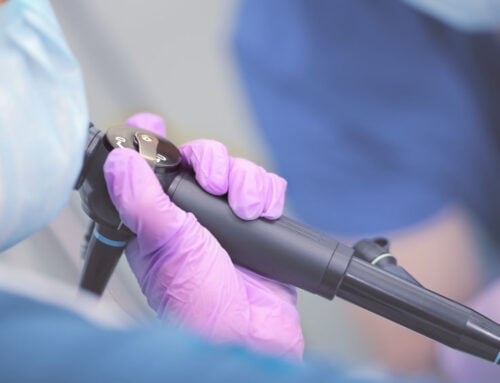When A Hernia Requires Action
A relatively common condition, hernias can happen to both men and women. A hernia is when a gap occurs in the abdominal wall, allowing some internal contents to protrude. Although hernias can occur anywhere on the body, inguinal hernias specifically refer to events in the abdominal or groin area. While the condition isn’t necessarily dangerous, surgery may be required to correct the problem in some scenarios.

Inguinal hernia symptoms
Most people think of hernias as painful conditions, but sometimes, people can have a hernia without symptoms. Other times the symptoms may come and go depending on activity levels. The most common symptoms include visible bulging around the pubic bone, scrotum, or labia, pressure or heaviness feelings in the groin, pain when straining to lift, coughing, straining, or bending over, and a burning or pinching sensation in the groin. While some hernias are due to congenital causes, others may find that sustained straining activities or intense exercise and work can also cause the condition. Certain warning signs can indicate when surgery may be needed for an inguinal hernia.
1. The bulge is larger than normal
Some bulging can be a typical symptom of an inguinal hernia. However, if the mass gets significantly larger, people should seek medical attention. Sometimes, the bulge may be impossible to push back through the abdominal wall. When such a situation occurs, the bulge is said to be incarcerated. If left untreated, the hernia can become strangulated, meaning that blood flow has been cut off to the tissue that’s trapped. Such an event can be life-threatening.
2. The hernia changes color
Similar to an incarcerated hernia, if the affected area changes colors, seek immediate medical attention. The color change is a sign of a problem. In particular, the tissue trapped in the inguinal hernia may struggle with blood flow. Left untreated, complications can arise.
3. Constipation, nausea, and fever
For some people with hernias, regular bowel movements or even passing gas can be affected. Depending on where along the digestive tract the condition takes place, a bowel blockage can occur. Likewise, some people with inguinal hernias may suffer from indigestion. Severe hernias can also lead to nausea or vomiting because part of a person’s digestive tract can get stuck in the abdominal wall. Lastly, a fever of 100.4 degrees Fahrenheit or more in adults, in conjunction with other hernia symptoms, is a sign to seek medical help immediately.
Don’t let a hernia linger
Although many people may experience hernias but never know that a problem has occurred, the condition can be serious. In particular, parents of children with inguinal hernias are encouraged to seek professional consult immediately. The hernia should be examined to ensure no other underlying causes are present such as cancer, hydrocele, an undescended or retracted testicle in boys, or even a femoral artery aneurysm. If warning signs such as a large bulge, color change, or fever occur, immediate medical attention is necessary.



